|
The Thursday Thesis - 23/4/2020
Warren Buffett – the World’s greatest investor – has a very simple way of sorting out the wheat from the chaff in his life. It obviously works, because he’s grown his company, Berkshire Hathaway, from nothing to billions, so we might be wise to take a tip or two from him. And that’s the thing – most people take advice from their peers. Big mistake. Huge. Why is it a mistake? Because your peers are more or less your equal, and are often less informed than you are. They are also navigating from their own map, applying their own prejudices and biases to your situation – making judgements based upon their values and principles. A far better plan is to get your tips from people who are doing better than you in the area of life you are concerned with. So – if you want to be financially successful – don’t take the advice of poor people. If you want to get into great shape – don’t take diet and exercise advice from fat people. Got it? Good. So, what did Warren do to keep his mind ON what he wanted and OFF what he doesn’t want? He made just two lists. List One is the DO list – the half-dozen most important things in his life. Half a dozen, max. List Two is everything else – the plethora of things that he absolutely didn’t want to do. He lives by List One. How simple is that? I wish someone had told me this when I was a spotty, long-haired kid. D’oh! © Neil Cowmeadow 2020 Please Like and Share The Thursday Thesis with your friends, family, and your chosen deity. I’d love to hear your comments, along with any ideas you’d care to hurl at me. [email protected]
0 Comments
The Thursday Thesis - 13/2/2020 It was Monday, and the storm ebbed away after throwing her tantrum all weekend long, leaving a few gusts of rage hanging around like someone who knows they have lost the argument saying “and another thing...” Outside, the blown-down trees were being cleared away, torn fences mended and ripped roofs patched up as the rain finally stopped and the wind piped-down. Somewhere a tree has torn down the electricity lines to my little town, so I’m camped out in Costa coffee whilst the leccy company try to restore power, and I’m having a good time scribbling away at an idea I’m working on. As usual I’m making a lovely inky mess as my fountain pen loops and scurries its way across the yellow pad I always carry with me, leaving a trail of deep magenta ink behind it, and I’m away with the fairies for a little while as my latte goes cold. Suddenly there’s a voice, saying quietly “I hope you don’t mind me disturbing you, but it’s just so nice to see someone writing with a real pen for a change”. I look up to see a smiling, pretty woman whom I quickly thank before she wishes me a good day and trundles off. The whole thing lasts maybe twenty seconds or so, and I take a sip of my lukewarm latte as I mull over the brief exchange and survey the other punters. Half a dozen of them are tapping away on laptops and tablet devices, the rest are phone-bothering. I’m the only person using a pen and paper: a singular luddite. Gadgets have their place as a necessary evil of the modern world, but there are times when only a real pen will cut it: for real writing and the sheer joy of stringing ideas together, nothing beats a pen. A proper pen. A proper ink-pen with creamy silken paper and ink the colour of dragon’s blood. I wouldn’t trade it for anything. I suspect it’s an act of rebellion against my schooling, against having my natural left-handedness knocked out of me and being made use my right hand because “left-handed people are the devil’s work...” Bizarre, but true. And it feels like I’m poking a finger in the eye of convention, raging against the crappy regulation biros with which I scratched away my school days. And it takes me as far away as I can imagine from dusty classrooms and writing “lines”, the misery of detention , or the humiliation of the remedial handwriting classes which did bugger-all good and only left me feeling like an imbecile. I now know that there wasn’t anything wrong with me: I’d just been told to do daft things with a pen which made it nigh-on impossible to do what I was told. And many years later I came to recognise the stupidity of compelling a child to use their less able hand to write with, and to question the logic underpinning that decision. Later still came the secret love of writing, the shape of words, and the appreciation of how beautiful the solitary act of writing could be... My fountain pen is truly one of my treasures. Made from lava erupted from Mount Etna, heavy in my hand, yet poised and balanced; it sighs as it caresses the creamy page like a lover’s skin, kept safe between the hard covers of my old-fashioned notebook. If only I’d been taught that the process of writing could be innately pleasurable: like a beautiful dance, from the first contemplation of the virgin beauty of the empty page and the first kiss of inky colour. The hand simply moves, and thoughts coalesce into droplets of dragon-blood condensed from the mind, now given the freedom to flow – unimpeded by touchscreen or keyboard Ink on paper is permanent and immediate, it doesn’t crash, and handwriting is rarely corrupted and seldom deleted by accident. A notebook remains present and instantly accessible, unlike the oubliette of a hard drive where files are saved and never seen again. Few things are as cool as flipping open an old notebook and discovering something which one has written and then forgotten all about. There are practical reasons for writing longhand, too: research indicates that we think differently when writing – there’s a sort of reprocessing of ideas which improves cognition and retention. Most of all, writing with a real pen is simply a pleasure, unseen by the disapproving spelling and grammar checkers. Set free the vagabond pen to roam and twist, spiral and swirl across, or up and down – the page. And perhaps it is this - the freedom of real writing - that compels us most. As the hollow promises and hype of digital technology are exposed, and that which was supposed to set us free enslaves us, there is a growing resistance movement and a resurgence of real writing – a sort of analogue underground – and I for one am proud to wear the inkstains of the writer on my fingers. © Neil Cowmeadow 2020 Please Like and Share The Thursday Thesis with your friends, family, and your chosen deity. I’d love to hear your comments, along with any ideas you’d care to hurl at me. [email protected] The Thursday Thesis - 23/1/2020 Well, here we are – three weeks into a new year and what’s changed? For most people, nothing has changed. Just a few weeks down the line from making definite, potentially life changing promises to ourselves, most of us are already right back where we started – or we soon will be. Our New Year’s Resolutions are beginning to fall apart, with around an 80% failure rate, according to Inc Magazine. So the majority of people make definite decisions to take action and change their lives for the better, but 8 out of 10 of them will fail... Once again, it seems that doing what most people do is not a good idea. If we are prepared to observe the masses and do the opposite, there’s a chance that the 80% failure rate could become a thing of the past. It’s not that New Year’s Resolutions are bad, in themselves – who could argue that taking better care of one’s health, finances or relationships is a bad thing? No, the problem isn’t the Resolution, it’s the implementation. Here’s what doesn’t work, most of the time: we make a decision and try to stick to it. If we diverge from our decision in any way, even just once, we throw out the whole thing and beat ourselves up for having no willpower, backbone or self-discipline. We have failed, and it is over. Sometimes this leaves us feeling even worse than we did before we made that decision, and that can have profound ramifications. But what if we were wrong about that failure – how would that be? Let’s suppose your New Year’s Resolution was to give up booze, but last Friday you had a couple of drinks with friends. You didn’t want to break your resolution, but your friends were so persuasive and bought your drinks for you. When you woke up on Saturday you felt disappointed – you’d let yourself down and everybody knew you’d broken your resolution. Now you feel like crap and begin to tell yourself that there’s no point even trying again, because everybody knows that New Year’s Resolutions always fail... Sounds familiar, doesn’t it? But what if we chose to think of that catastrophic and final failure to stay clean – that unwanted behaviour - as something other than the end of our resolution: suppose it was really a successful test? What you really found was a successful test of a behaviour that you didn’t want. That test was necessary to make sure that you didn’t want to do it, wasn’t it? If that were true, you could eliminate it from your list of potential actions and resume your ongoing tests of behaviour that will support your long-term aims, in this case you New Year’s Resolution. The core of the problem is that we over-respond to a single, momentary failure and let it define us. If we had decided to stop drinking alcohol and “go on the wagon” at New Year, but had fallen off the wagon last weekend, the sharpest thing to do is to get back on the wagon right away. An intelligent person would ask themself what happened and what they could do differently in order to stay on the wagon, rather than curse themself and throw themselves back under the wheels. The intelligent person reminds themself that it was just a test, and then asks themself “so, what might work better?” because they know that is a thousand mile journey, but it is lived in inches. The intelligent person recognises the inch of lost ground when they fail, then strides out to regain that inch and then some. So, if your own New Year’s Resolution – or any other decision – has been broken, today is another inch of your thousand mile journey: another chance to test what works and what doesn’t work, another chance to become who and what you want to be. Keep Testing. © Neil Cowmeadow 2019 Please Like and Share The Thursday Thesis with your friends, family, and your chosen deity. I’d love to hear your comments, along with any ideas you’d care to hurl at me. [email protected] The Thursday Thesis - 12/12/2019 “You are all diseased” – George Carlin. A couple of weeks ago I was reading about how much healthcare costs us here in the UK – it’s a lot of money, and it’s never enough. Just like churches appealing for more money (apparently God isn’t good with money and always needs more...) the NHS needs more money, despite the patently obvious fact that the health of our nation can’t be bought on our current budget – or any other budget, for that matter. It occurs to me that we’ve got it all arse-about-face: completely arse-about-face. We need to flip the model. At the moment we pay doctors for treating sick patients – usually with expensive drugs which don’t treat the underlying causes of disease, but instead manage the symptoms. Of course, that’s what the drugs are designed to do – manage the condition, not treat the underlying problem. It’s a good model – if you’re in the medical business. Cure the condition – no more drug sales: it’s a transaction that happens just once. That’s Bad Business. But manage the condition and you have a repeat business model that keeps the patient just sick enough to keep coming back for more of what doesn’t work. I’ll say it again: The drugs don’t work because they’re not designed to cure. And if you pause to think about the “payment-by-volume” medical model, you’d have to conclude that something is truly fucked-up. Think about it – the more sick people you have in your practice, the more money you get paid... Hmmm – is there a disincentive here? Get to the root of the problem and treat it effectively and you’re going out of business... A chronically sick patient is a long-term asset to a medical business, generating lots of repeat business for as long as they remain sick and in need of your attention and those all-important drugs. Now, I’m usually an optimist when it comes to human nature, but a little bell rings in the back of my mind when I think about the Sickness Industry: how about you? It’s obvious, isn’t it? More sick people are good for business, whether you are a doctor or a drug company. Just like any business, the job of a medical practice or drug company is to recruit, develop and retain a customer, maximising their Lifetime Value to the business. As a pharmaceutical supplier you want to stimulate, grow and maintain demand for your products and services; pushing up prices and enhancing the perception of the worth of your offering. The dream-ticket in the sickness business is to invent, and then profitably medicate, a condition. Do that and you’ve hit the jackpot: ADHD/ADD and Ritalin spring to mind here, though there are many, many more examples out there. To whoever invented the diagnosis of “Stress”, I take my hat off to you. By making a person’s inability to deal with challenge into a medical condition (and inventing a drug which helps just a little) you’ve shown true genius and richly deserve the billions of dollars/pounds you’ve hoodwinked the foolish out of. Nice. Those who profit from disease and sickness run the show. In a nutshell – the foxes are in charge of the henhouse. Naturally, the foxes will suggest that what we really need are more foxes to guard the hens... And more money, of course, to buy more of what doesn’t work. So here’s my Genius Masterplan to save the NHS, reform the Sickness Industry, slash the cost of real healthcare to all of us, and improve the health of more people. Are you ready? Here we go: It’s simple. On Planet Neil, the doctors are paid only when the patient is well. Let’s all pay a small monthly subscription, something like your current National Insurance Contributions, but used for promoting real health instead of paying Government debt and drugs that fail to cure. Should you become sick, however, the doctor receives nothing from you but must treat you. It’s a simple idea. Incentivising the whole healthcare sector to move away from management of disease and toward curing the root causes of disease, thus promoting long-term health, rather than incentivising the prescription of ineffective, expensive drugs to manage symptoms. Now, if your illness is the product of your own stupidity, indolence or inability to manage yourself and take responsibility for your own life (obesity, alcoholism, drug abuse etc) you get three chances to man up and run your own life, each of which is time-limited and designed to treat underlying behaviour issues. Three Strikes and you’re out. Should you fail to mend your ways after your third strike-out you are released from the system to fend for yourself, out into an unregulated market for private medicine and healthcare where you can re-connect with the old model of healthcare. Should you be ejected from Planet Neil’s Healthcare System, that’s YOUR problem, because your health and what you do to yourself is YOUR life, YOUR decision. Naturally, those who cannot manage themselves and their own health will tend to remove themselves from the healthcare system and ultimately from the gene pool if left to their own desires and devices. I know that softy Pinko liberals will hate this suggestion, but – let’s face it – they live in a world of fluffy clouds and pink unicorns, having little or no connection with reality. I think it is spectacularly foolish to squander vast quantities of scarce resources upon those individuals who are determined to destroy themselves. So let those who wish to kill themselves with drugs, booze, smoking and other poisons get on with it. The State (well, you and I, actually) should not support such self-destructive behaviour at the expense of others who are taking responsibility for their lives, because that is so patently unjust and absurd. To penalise those who do right in order to maintain those determined to do wrong and harm themselves is an insult to common sense: it is the ultimate insult to morality and human dignity. For sure I believe fiercely in Equality of Opportunity and equal provision of healthcare – but I have no time for the not unworkable fantasy of Equality of Outcome, because people are fundamentally unequal and do not live in equal ways. That’s reality – and we should never delude ourselves that it is otherwise. © Neil Cowmeadow 2019 Please Like and Share The Thursday Thesis with your friends, family, and your chosen deity. I’d love to hear your comments, along with any ideas you’d care to hurl at me. [email protected] Episode 178 - White Belt Mind
The Thursday Thesis - 21/11/2019 It is said that when one begins the journey into Buddhism the hardest thing to do is to clear one’s mind: to achieve Shoshin – the so-called Beginner’s Mind. Shoshin is an empty mind; no preconceptions and open to anything when studying a subject. And it is a mind without place-markers for meaning or a frame of reference the initiate can easily feel lost and disoriented. In meditation we should try to simply be: to quiet the seemingly incessant chatter of our “Monkey Mind” which is our usual waking state – unsettled, restless, capricious, whimsical, fanciful and inconstant; confused, indecisive and almost completely uncontrollable. Monkey Mind's thoughts rise up inside us, capture and fixate our attention, then fade into darkness like fireworks in the night. The aim is to simply empty one’s mind and notice what comes and goes, without reacting or judging, usually by paying attention to one’s breath and the flow of air into and out of the body; to observe our Monkey Mind thoughts rise, subside and fade, only to be replaced by more thoughts, which – in turn – also pass and are replaced, endlessly and continuously. All that Monkey Mind sounds pretty tiring to me. In Beginner’s Mind we accept that we know nothing – because we are beginners (the clue is in the name). When newcomers to the guitar come for their first lesson the biggest problem is that they already know that learning to play guitar will be difficult, that they have no talent, no rhythm, that there are no musicians in their family, etc, etc, etc. Their Monkey Mind has been yapping away for years – often decades – based on knowing bugger-all about playing guitar! Yep, based on no knowledge of the instrument they (we, really – because I used to “know” how hard it was to play guitar, too) have convinced themselves of a whole bunch of unhelpful things, so the very first (and most important) thing in the lesson will be the systematic elimination of those beliefs – to engender their Beginner’s Mind and to clear away their unfounded certainty. Subduing Monkey Mind takes time and... And what? Not effort, but attention. Once you become aware of Monkey Mind and simply notice its prattle, you can let it talk and talk – allow it to rage and rail, worry and fret – notice that thoughts rise and subside, endlessly forming and drifting away. You come to realise that most of it is just nonsense and, over time, become less attached to your thoughts and reactions: the mind clears and empties itself. We can come to understand that we know nothing and in so doing begin to learn the first lesson. The lesson is that it’s not what you don’t know that hurts you, it’s what you know damned well and that isn’t true that hurts you. Your Monkey Mind dances with untruth, worry and your own fears turned back in on yourself, and by stilling that Monkey chatter you can open up your mind to learning. The first step to learning to play the guitar - or anything else for that matter - is to clear away the untrue, the second is to acquire the true. © Neil Cowmeadow 2019 Please Like and Share The Thursday Thesis with your friends, family, and your chosen deity. I’d love to hear your comments, along with any ideas you’d care to hurl at me. [email protected] The Thursday Thesis - 10/10/2019 When I was a freckly sprog I’d sit and watch the flames and glowing coals of my grandma’s open fire – it’s something I love to do, even now. Shapes change, bright spots flare and subside, and shapes shift to become.... Well, what exactly? More often than not it’s a face – not the face that my great grandma warned me about, because that was always the devil’s face I had to be careful of – or something that looked enough like a face for my eyes and brain to connect the dots of randomness until they began to resemble the familiar. We all do it – it’s a universal human trait with its own fancy name: pareidolia. According to the Merriam-Webster Dictionary it is “...the tendency to perceive a specific, often meaningful image in a random or ambiguous visual pattern...” It turns out that we humans are wired to sort for the familiar and especially for other humans – which is no surprise given our evolutionary need to find food and a mate. But the most important word in that definition is “familiar” because we can manage what becomes familiar to us – it’s something we have control over. If we have love and security, that’s what we’ll expect to be around us and we’ll seek out love and security. Likewise, if we are surrounded by mistrust, hate, violence and division – such as our news programmes are crammed full of – then guess what...? Yep – we’re going to expect to find that everywhere we go. So when we begin to remove undesirable things from our lives (top tip: start with your television) that will begin to reduce our tendency to find those things in random events and objects. When we don’t have doom, gloom and depravity forced down our throats every day, then guess what – we see less of it in our everyday environment. Conversely, if we are surrounded by positivity and optimism, we will recognise those things in apparently random objects and occurrences, instead. So, looking at ambiguous images such as the ten inkblots of the Rorschach inkblot tests can indicate what a person’s biases are, as the viewer “projects” what they think should be present onto the random shape of the inkblot. So next time you glimpse a face in a cloud, or notice that a car’s front-end seems to wear a certain expression, relax – you’re not going mad, you’re just seeing things. And that’s ok by me. © Neil Cowmeadow 2019 Please Like and Share The Thursday Thesis with your friends, family, and your chosen deity. I’d love to hear your comments, along with any ideas you’d care to hurl at me. [email protected] The Thursday Thesis - 03/10/2019
As a spotty teenage guitar wannabe, all I knew about feedback was that it was a hideous, high-pitched scream emanating from my Marshall amplifier when I had the volume cranked and I was too close to the speakers. These days, my amps are smaller, my guitar playing slightly less bad, and electronic feedback much less common. But feedback is the bread-and-butter of daily life – it’s how our bodies respond to our environment without us even thinking about it, and how we decide upon which behaviours to adopt, continue or abandon. In fact, feedback is the core of human behaviour: look at any behaviour pattern and feedback will be present, one way or another. From our eating habits to our exercise patterns, sexual proclivities and spending habits (no connection between these last two), everything comes down to feedback. So what is feedback, how does it work, and how can we hijack ourselves to get more of what we what and less of what we don’t? In a nutshell, feedback is the tendency of a system - in this case, us – to respond to received information (sensations or feelings) in a consistent way in order to produce more or less of the incoming sensations. If we are receiving information we find pleasurable or positive – say, a delicious taste, sexual excitement, rewards or peer esteem – we will continue to perform the activity which produces those desirable sensations. This is known as Positive Feedback. And if the sensations being received are unpleasant or negative – for example, food we don’t like, pain, punishment or exclusion from our peer group – we will modify our behaviour to reduce or eliminate the unpleasantness. Freud’s Pleasure Principle is a pretty good summary of how feedback works: “people to seek pleasure and avoid pain”. That’s really the nuts and bolts of feedback – it’s pretty simple. So how do we hack our own feedback loops to be happier, fitter, wealthier? Just two: words: pay attention. Notice what is working for you and do more of it. And notice what isn’t working for you, then do less of it. It’s simple, and it only takes a moment of detached consideration and honesty to ask yourself the simple question “Is what I am doing now producing the kinds of results which will make me more like the person I want to become?” If the answer is “Yes”, do more of it and improve it. If the answer is “No”, stop doing it as soon as you possibly can. Suppose you’re mouth is watering at the sight of a yummy fresh doughnut... Before you wade in with all teeth blazing – just ask yourself “Is eating that doughnut going to help make me the sort of fit, slim person I want to be?” And be honest with yourself. If you're wrestling your guitar and getting nowhere, pause and ask yourself "is what I'm doing now helping or hurting my development and enjoyment on the guitar?" "Success leaves clues", as they say - and so does failure... If you spend your life doing things consistent with the actions of the person you’d most like to meet, you must – inevitably – become that person. © Neil Cowmeadow 2019 Please Like and Share The Thursday Thesis with your friends, family, and your chosen deity. I’d love to hear your comments, along with any ideas you’d care to hurl at me. [email protected] Episode 168 - The Art of Looking Sideways
The Thursday Thesis - 12/9/2019 I can’t remember when I first heard the phrase “a sideways look”, but I do remember that it was in a story of a wise woman facing down a villager who accused her of witchcraft. In the story that Sideways Look was all suspicion and contempt as the wise woman cowed her accuser. And it’s such a funny idea, looking sideways, that it stuck with me. Tumbled by time and stained by my ribald life it’s acquired a new meaning for me, no longer is it haughty contempt – not in my sense of the phrase, anyway. No, for me it’s become a look of deep curiosity, this sideways look. Maybe it’s like the look of romantic interest, sudden curiosity and potential passion, and maybe it is charged with suspicion; but whatever it is, you know a sideways look when you get one. Time freezes briefly when someone looks at you that way. We feel our souls are being scrutinised by a sideways look, our very essence assayed and examined. And it all happens in an instant. That Sideways Look takes nothing at Face Value, it asks questions and weighs things up. When you Look Sideways you don’t just begin to think about what was said – you begin to factor-in who said it, how they said it, the context in which it was said, and what they did not say. Whatever the delivery media - Speech, book, video, commercial, print ad, radio or TV show - you begin to probe the speaker’s motives, their choice of words, their body language and posture, vocal nuances and rate of speech. Looking Sideways isn’t just about face-to-face encounters with real people, and it definitely applies to advertising, marketing, mainstream media, social media, music and the Arts A sideways look is really critical thinking, looking beyond and around, as well as into and through, the surface of events, messages, conversations. It squints at what is being shown, listens intently for what is said, hears the creaking of distortion and the sly whisper of Spin – moreover, it reaches into the dark silences of what is being left out. © Neil Cowmeadow 2019 Please Like and Share The Thursday Thesis with your friends, family, and your chosen deity. I’d love to hear your comments, along with any ideas you’d care to hurl at me. [email protected] The Thursday Thesis - 05/09/2019 Comfort will drain your life of all meaning. Comfort will make you irrelevant. Comfort is your sworn enemy. Comfort will kill you, Stone dead. I was talking to a lady a couple of days ago - you know, all about life and stuff. She’d had a successful career and was looking forward to a “comfortable retirement” in a few years. That seems such an old-fashioned image: drifting off into a quiet life of pottering around, fading by degrees into invisibility, a thirty-year waiting room before the last, long, lie-in. There’s something deeply offensive about the word “comfortable”, at least to me. There’s a suggestion of irrelevance, of ineffectuality about it. Humans are built to strive, learn and grow – it’s what really makes us tick. If life is comfortable we are likely to become unhappy as we lack obstacles to overcome, challenges to meet, dreams to capture and dragons to slay. There seems something disturbing about being comfortable – a curious sense of drifting and lack of purpose. It’s probably just me, projecting my own hang-ups onto the word. But I would hate to be comfortable. In fact, I shudder when I imagine having no reason to get out of bed. Reason tells me that if I’m not busy growing I’m probably shrinking, because only making a demand on our bodies will stimulate growth and repair. Without stress, without challenge, we may not even maintain our status quo. I’m not ready to shuffle off into someone else’s dream of a comfortable retirement – are you? That’s an old dream, peddled by people who were sold it themselves, only to find it hollow when they got there. Get uncomfortable. Do something that takes you outside of your comfort zone. Push your boundaries, because they are shrinking in on you every single day, whether you like it or not. If you don’t push back, you’ll shrink and fade away. Keep pushing back. Get busy doing that thing you’ve always wanted to do – you know which one I mean, don’t you? It’s the thing that scares the living crap out of you: maybe it’s learning to play guitar, run a marathon, start a business, leave your job. You know I’m talking to you, in particular, don’t you? The time is now. This is your moment. This is your life ticking away. Only you are standing in your way, because The Universe is too big, cold and indifferent to care about you, one way or the other. In fact, The Universe really doesn’t give a fuck about you, so get over it and get uncomfortable doing that scary big thing. Get out of your own way and do it. Don’t get comfortable. © Neil Cowmeadow 2019 Remember to Like and Share The Thursday Thesis with your friends, family, and anyone else. I’d love to hear your comments, along with any ideas you’d care to hurl at me. [email protected] Episode 166 - Observe The Masses...
The Thursday Thesis - 29/8/2019 Within the world of business, finance and investing, Warren Buffet is pretty much a legend in his own lifetime. Now in his 80’s the Chairman of the Berkshire Hathaway investment fund is still playing The Game he loves most – the Game of Money. You might ask “Why would he want to keep on working at his age?” Because it is his game – his fascination and his calling. He certainly isn’t in it for the money itself: with a personal net worth of around 80 Billion dollars it would be hard to make much of a dent in his fortune. In fact, that amount of money invested at just 3% would earn him an eye-popping 2.4 Billion dollars a year, pre tax. He's a lone wolf - happy to pursue his own passions and interests when it flies in the face of popular opinion. Buffet is, by nature, a contrarian - believing that he should try be brave when everyone else is fearful, and when everyone else is brave – he should be fearful. Part of his philosophy is, in essence, Observe The Masses – Do the Contrary. There’s a curious logic to the way he thinks: reasoning that there are fewer successful investors than unsuccessful investors, those in the minority have the best odds of success. Observe the masses... It works across all areas of life – even learning to play guitar – where the most common approach is to “teach yourself” what you don’t know how to do, and only a minority book themselves in with a teacher to accelerate their progress. That’s why most wannabe guitarists quit or are frustrated and stuck. Observe the masses... Work surveys constantly report that around 70% of people hate their jobs, approximately 25% are indifferent and only around 5% of people actually get paid for doing work they really enjoy. Observe the masses, do the contrary. When everyone around you is moaning about the economy, Brexit, the state of the country, or how crap the local football team is doing this year, feel free to run the other way. Consciously choose to be positive instead – don’t get caught up in a game of one-downsmanship with people who are more negative than you are. You know the game, don’t you? It’s the one where – no matter how big their problem is, yours is so much worse. When the usual crowd are milling around - moaning and bitching about the crap on TV last night, the price of a pint or that trollop from accounts and her new shoes – run. Just get yourself away from their tractor beams before you are sucked into their negative vortex and begin to compete for the “My Life is Crappier Than Yours” prize. There’s a lot of competition for that award, but even if you won it, you’d still be a loser. Given the choice between what most people do and what the minority do - day in, day out – do you want to run with the pack or howl with the lone wolves? Be more wolf: Observe the masses, do the contrary. Harrrroooouul!! © Neil Cowmeadow 2019 Please Like and Share The Thursday Thesis with your friends, family, and your chosen deity. I’d love to hear your comments, along with any ideas you’d care to hurl at me. [email protected] The Thursday Thesis -22/8/2019
Precise. Specific. They are two words I adore. They’re solid words, and there’s something very reliable and dependable about them: they stand for accuracy and certainty, a gimlet-eyed no-nonsense attention to detail and a straight-backed “X marks the spot” rigour that borders on being finicky. I love the words, but recoil from their rigidity. Nobody could argue against Precision and specificity in the study of absolute measurements: mathematics, logic and the like. But they’re words which don’t play nicely. Their strictness excludes them from the creative act, because they lack the sense of fun which is the hallmark of invention, creativity, the arts and true insight. They are also the sworn enemies of learning. So, how do we learn best? It turns out that learning can be learned and accelerated - just like any other skill. The trick is to begin with what I call Useful Generalisations: the core ideas which are true for the great majority of cases, the great majority of the time. In other words, find out what works most of the time, and which – logically – has the highest probability of being correct, most of the time. With the most common and therefore most useful concepts secured, we can shift our attention to the next most likely occurrences: the most common exceptions to the Useful Generalisations. By noting their deviations from the Useful Generalisations we can develop a set of rules – an algorithm – we can now handle the great majority of situations and occurrences. This learning pathway always delivers the most “Bang for the Buck” for us, because it always attends to the highest-returning investment of our time first, and prevents us from becoming lost in the fine detail of the seldom-encountered, the rare, and the unusual. So to begin learning anything always try to find experts - teachers, coaches and mentors to show you the most important ideas first. With hindsight, trying to teach myself something I didn’t know how to do was not a wise approach, and it cost me too much time. Yet I tried it, and the chances are that you have done so, too. The Broad Sweeps, the Big Ideas and the Useful Generalisations must come before the unlikely, the Rare, the Precise and the Specific, because (to quote Goethe) “...the things which matter most must never be at the mercy of the things which matter least...” © Neil Cowmeadow 2019 Please Like and Share The Thursday Thesis with your friends, family, and your chosen deity. I’d love to hear your comments, along with any ideas you’d care to hurl at me. [email protected] The Thursday Thesis - 18/7/2019 Steve Jobs of Apple told the graduating students of Stanford University “...you can’t connect the dots looking forward; you can only connect them looking backward. So you have to trust that the dots will somehow connect in your future.” To put it another way, when you are further down the line, you can look back and see the turning points and decisions that got you to where you are: you can see how everything connects up along the way and – from the future’s perspective – make it seem inevitable that things turned out the way they have. For most of us, “Looking forward to the future” is a pretty good description of how we think, because when we imagine the future we usually create images and visions of the future in front of us, and usually dead-centre. Maybe it’s because humans’ normal direction of movement is forward that we hold the future in front of us, as though we could step into it in the same way we walk to the corner shop. But the future is more like a fall, backwards into the unknowable, looking at the “dots” which preceded the fall. This is why imagining your future is vital to any kind of planning and personal growth; by visualising our future we can “step in to” our idealised, imagined future and observe our course from that position. We can visualise the steps of the journey which culminated in that imagined future, notice the turning points and critical moments, the decisions and actions which shaped the pathway to where we imagine we want to go - our imagined future. You can’t do it from where you are, but you can fast-forward into the future and look back, joining the dots and admiring how perfectly the route you took got you to where you wanted to be. What’s your future going to look like - and when you look back from it, which dots will you connect up? © Neil Cowmeadow 2019 Please Like and Share The Thursday Thesis with your friends, family, and your chosen deity. I’d love to hear your comments, along with any ideas you’d care to hurl at me. [email protected] The Thursday Thesis - 4/7/2019
Unless you - like me - are a geek, chances are that you’ve never heard of Warren Buffet, the American investor, businessman and philanthropist. Now, Warren is an interesting guy – maybe even a genius – content to conquer the world of investing from Omaha, Nebraska rather than a glass tower on Wall Street. In fact, Warren thinks differently about almost everything; “observe the masses, do the contrary” could almost be his mantra. Here are a few key points about “The Sage of Omaha”
Apart from his philosophy of thinking long-term and being frugal, Warren has a pretty cool trick up his sleeve when it comes to managing his time – here’s an overview of the process: First he makes a list of his top 25 goals. From that list he identifies the top 5 goals. His top 5 goals go on his List One: The Vital Few things which will make all the difference. The other 20 goals go onto his List Two: the Avoid-At-All-Costs List. I think that’s brilliantly simple – and I’m whittling away at the unnecessary things in my own life in order to focus on the “Vital Few” things which will be of greatest value to me and the people I love. It’s a very clear system, but it requires discipline and focus to stick to it, because it’s hard to let go of things we love – even when they don’t serve us – and it’s hard to resist the temptation of short-term pleasure in order to achieve a long-term goal. But above all else, Buffett’s system demands we understand what is important to us. So, put the kettle on and brew yourself a nice cup of tea, then sit quietly and mull over the questions: What would be on your Vital Few list? What would you have to disregard in order to have only 5 things on your own Vital Few list? Your answers could change your life. © Neil Cowmeadow 2019 Please Like and Share The Thursday Thesis with your friends, family, and your chosen deity. I’d love to hear your comments, along with any ideas you’d care to hurl at me. [email protected] Episode 155 - The Wisdom of Baldrick The Thursday Thesis - 13/6/2019 Baldrick: Wait a moment, My Lord! I have a cunning plan that cannot fail! Blackadder “The Witchsmeller Pursuivant” Yep, even Blackadder’s sidekick – the downtrodden yet optimistic Baldrick – had a plan. And Baldrick’s plan was always very cunning – at least to Baldrick. And it’s a funny thing, but growing up in Wolverhampton in the sixties and seventies, nobody mentioned plans for our lives: certainly not at school, and not at home either. At no point did anyone suggest that having a plan for your life would be a good thing, or that aiming high was to be desired and admired. Though, come to think of it, I probably wouldn’t have listened to them if they had: I was always a stroppy little sod. As the seventies ended and the decade tipped over into the eighties the story was still the same: plans for your life were not talked about: they were not what you did. I do distinctly remember being told that if I were foolish or arrogant enough to dare to make a plan, I could expect Fate to thwart and frustrate me at every step. It seemed that Life Plans were for dreamers and delusional oddballs; the know-alls and nutjobs. And there was something comedic about these people with plans, too – as though they were dreaming a little too hard... Now I understand that if we don’t have a plan for how our lives should be, we’ll end up working for someone else who does have a plan for us and whose plans probably won’t be much to our benefit: I just wish I’d found that out forty years ago! You don’t have to look far to see people making plans – invariably the wrong plans. It’s commonplace to spend a very long time planning one’s wedding or annual holiday – but it’s much less common to really plan a life for oneself, based upon what might be a fun way to spend the next seventy or so years. Doesn’t that strike you as odd – or is it just me? If you have a plan, then there’s a chance of things going the way you want them to. Without a plan we are unlikely to end up with what we want. Like a beautiful ship without a map or compass, we can sail and drift for years – sometimes for a lifetime – even though the rudder is working and the sails are full of wind, but without a course to steer by, even the best ships wreck and run aground on unknown shores. In the military it’s often said that “no plan survives contact with the enemy” and it’s true. The armed forces are masters of planning, and the phrase “planned with military precision” has become synonymous with effective and efficient operations. Here’s the thing, though: the army knows that its plans will not survive contact with the enemy, but it still invests time and effort into making plans to ensure that the desired operational outcome is achieved with minimal losses – after all, what kind of army goes off to war with the idea that they’ll maybe go and “...wander around – probably in that country over there - and maybe do some fighting...”? It would be ridiculous for an army to act in that way, and it would be ridiculous for anyone to act in that way, too. For an army many lives may depend upon the operational plan: for us as individuals, we are entirely dependent on our plan, or – more often than not – no plan whatsoever. We march forth into each new day, becoming too focused in the day-to-day business of daily life to pause and look a little further down the road, survey hazards and scout for opportunities, and to make plans for their evasion or exploitation. Lost in the fast-paced busy-ness of everyday life, crisis of the moment and our immediate needs, we forget to plan what happens after today’s crisis has passed. So I think it’s a great idea to take time off, once a year, and get away from work for a day or three. Isolate yourself from anything that could distract you from figuring out how you’d like to spend the next ten, twenty or more years and deciding what your life might be after those years have passed. Write it all down and review your plan – in depth, every month; refer to your plan on Monday morning and notice how things are progressing or not progressing; then identify the short-term activities which will move you closer to your desired outcome. It’s not rocket science, but a plan is usually the thought-foundation upon which everything else is built. You see, making a plan is just like creating a blueprint for your life. There will be changes and amendments, re-thinks and re-drafts along the way, it will never be completely right, and it will never be perfect, because no plan ever is - but even a fairly good plan has a better chance of success than having no plan at all. © Neil Cowmeadow 2019 Please Like and Share The Thursday Thesis with your friends, family, and your chosen deity. I’d love to hear your comments, along with any ideas you’d care to hurl at me. [email protected] The Thursday Thesis – 30/5/2019
Warning: Do not listen to the audio version of this blog if you are driving or operating machinery, as it contains hypnotic language patterns and may induce rapid Trance. Mention to anyone that you’re a hypnotist and you’ll often get funny looks from them. To many people there’s the image of the stage hypnotist and people quacking like ducks as they waddle around him; to others there’s the Svengali-like figure exerting mind control over his victim. But hypnosis – or Trance - is a natural state which we all pass into and emerge from throughout every day of our lives, and Hypnosis has been recorded in human history since the dynastic period in Egypt, around four thousand years ago. So – if everyone does it every day - why do people have strange ideas about trance and struggle to define what hypnosis is all about? Here’s my favourite definition of Trance: the condition of focused attention and the establishment of acceptable selective thinking. One thing that training in hypnosis has taught me is that people are in trance for almost all of the day: their family trance, their work trance, their geezer-down-the-pub trance – behaving differently from one context to another. Any parent who has lost their child for what seems like days on end as the child is absorbed in the latest computer game will have observed this, just as we have all seen people staring intently at their phones, impervious to the world around them. Computer games are designed to create absorption in order to keep the user in the game and create dependence by a carefully constructed pathway strewn with rewards and schemes: they are designed to induce trance in the players and to offer them a more engaging experience than dealing with reality. They’re not zombies, they’re just in trance and are not paying attention to what we call reality – just like I did as a child transforming myself into Spiderman, a Commando, the Wolves’ captain or my flavour-of-the-week favourite pop star. Being aware of trance phenomena has been a huge help when I’m working with my guitar students – particularly the ones who tell me “...I have no musical talent / I can’t play guitar... / I have no sense of rhythm...”which is just about everybody! The problem isn’t that they lack talent or haven’t been blessed with a “Gift”: the problem is that they’re stuck in a trance and don’t know how to get out of it. Over a lifetime they’ve accumulated evidence which supports the “no talent” statement or any other belief they hold about themselves: they have learned to focus their attention on what they cannot yet do and to only think in terms of how hard it would be for them to learn. It’s a circular belief system – a positive feedback loop – which demands that the student pays close attention to what they don’t know how to do (because they haven’t tried it yet), reminding them that they can’t play guitar and reinforces the belief that learning to play will be super-hard...especially for someone like them, who has no talent or natural gift.... They have a robust system of self-reinforcing beliefs and focused attention: that’s a Trance. Here’s the rule: if you’re not aware of it, you can’t affect it. That means we’ll rarely experience a change in ourselves unless we pay attention to how we move through the world; how we think, how we interact with others, how we talk to ourselves and how we view our experiences every day. How may we know to wake if we were not aware we are asleep? The other really cool thing I learned from hypnosis is what hypnotists call “Utilisation” – the process of using everything that happens as being a natural part of the client’s journey into Trance. For example, let’s suppose that - as the client relaxes ever more deeply and becomes more inwardly focused – a car alarm goes off in the street outside. The imperturbable hypnotist will utilise the unwanted noise to reinforce the client’s focus, as though the blaring horn was just another component of the mechanism of Trance, by saying “...and as you notice the sound of a car alarm in the street outside, you’ll simply pay closer and closer attention, now, to the sound of my voice as the car alarm grows quieter and more distant with every breath you take and every beat of your heart... and you notice once again that the sound of my voice takes you deeper and deeper down into the feelings you have that are the most relaxed feelings you’ve ever had, in the way that is most right for you...” This is a very powerful technique for the hypnotist to use, but suppose we just stole that idea and applied it across the everyday business of living? What new meaning could we make from the flat tyre or the laddered stocking, the deal that fell through or the date who stood us up? “...And as I leave the cinema and I attend to my breathing, I can thank my lucky stars that I can quickly eliminate her from my enquiries, which means that I retain a space in my life for someone who will show up for dates and who will be a better partner for me...this is a good thing”. Suppose we figured out how to make everything that happened to us a necessary precursor to our success or achievement of our worthy goal? Wouldn’t that be a Trance worth going into? © Neil Cowmeadow 2019 Please Like and Share The Thursday Thesis with your friends, family, and your invisible friend. I’d love to hear your comments, along with any ideas you’d care to hurl at me. [email protected] The Thursday Thesis – 2/5/2019
Humans are funny little creatures. This is not news, by the way – it’s a stone-cold fact. Give a human one thing and he’ll immediately want the opposite, give her what she said wanted and it will immediately change. Bit of a bugger isn’t it? And here’s the thing: everything is a continuum with us. Somewhere between extreme X and extreme Y we’ll settle...but not for long. The overwhelming impression is restlessness and a need for change, accompanied by an infuriating need for sameness and familiarity. When we experience too much sameness we say that we are bored, that everything is routine and life is dull. Give us too much change and we feel out of control and insecure, that we are stressed and scared. The minute we have too much of one or the other we react by trying to create more of what we were trying to get away from! Infuriating, but oh-so-human. And this change-versus-boredom pattern shows up in music, too. We like music to be sufficiently similar to everything else we’ve ever heard that it’s familiar and relatable; whilst at the same time needing it to be different enough to be interesting. You hear this all the time, when people say “Ooh, that reminds me of that old song by so-and-so...” or “All their songs sound the same...” There’s a reason for the similarity between songs: if a band or “artist” (pretentious terminology alert) suddenly switch genres or styles, their audience has a WTF moment and there’s uproar. Such reinvention is a risky strategy for a performer or a brand – having built an audience by being one thing, there’s a real danger of alienating that audience by suddenly becoming something else. Fans want their favourite acts to produce more of the same, but new versions of it. Every band or performer has their little quirk, their stylistic wrinkle on things; this is what their audience unconsciously identifies and resonates with. And every song has this continuum, too: verses establish the basic idea, but after a couple of verses we begin to want something new... that’s where the chorus comes in, to disrupt the pattern and change things...but now we begin to want more of the original verse idea, don’t we? Pretty soon, we’ll tire of the verse/chorus pattern, too – so that’s an opportunity for a guitar solo or a breakdown section, a “middle 8” that takes the music in a different direction. It’s fractal, as the same pattern emerges across all of life: sameness versus change. Do you recognise the pattern in your own life, just like I see it writ large in mine? Sameness keeps me comfortable, but too much of it and I’m bored rigid: massive change is scary and uncomfortable. Somewhere between the two extremes I find a tolerable compromise – and immediately begin to destabilise it. Infuriating, or what?! © Neil Cowmeadow 2019 Please Like and Share The Thursday Thesis with your friends, family, and your invisible friend. I’d love to hear your comments, along with any ideas you’d care to hurl at me. [email protected] The Thursday Thesis – 18/4/2019
Yesterday, the cathedral of Notre Dame de Paris was in flames. Today, the people with the means to donate millions of Euros – of their own money – are being vilified for being rich enough to do that. Yes, hard-working, successful people are giving away vast amounts of their own money...and some people are actually getting the hump about this? I ask you, is it really anybody else’s business what Bernard Arnault or Francois-Henri Pinault do with their millions? Why is the media giving airtime to self-appointed loudmouths who decry people for being successful and wealthy – what gives? Why is social media lit up by keyboard warriors spitting hate at those who have dared to break the rules and become successful? Is it just me who thinks that being successful and wealthy is something to aspire to, not revile? Am I the only person who gets pissed-off with this sort of self-righteous “rich people are evil” crap? If we are free to make choices for ourselves – as we surely should – are we not free to strive, thrive and flourish; without being lambasted for our pains? And the greatest travesty of all is the misuse of the magic word “Equality” by the haters, who mistakenly think their precious Equality governs outcomes: it doesn’t. Think about it for more than a few knee-jerk seconds and it will become clear that Equality must be given at the point of opportunity, and the individual must be free to pursue their own legitimate goals from that point, because, if you are denied the freedom to choose your own path, you are not free at all: you are either a prisoner or a slave; you are not a free man. Equality must not be confused with the imposition of uniform mediocrity upon everyone – because that condition is mere slavery. So tell me, is it just me who thinks that a person who has grafted for decades, created businesses and employed thousands, who has given their customers what they wanted at a fair price – not stolen from them at gunpoint, as our governments traditionally do – should be free to give away their hard-earned cash to rebuild an old church, just because they want to? Yes, there are kids who could use the money, hospitals that could be built; any number of worthy causes who’d love to get their hands on Arnault and Pinault’s dosh: but the point is that it’s THEIR dosh, and how they dispose of it is none of your bloody business. And if the Freedom and Equality gobshites have a problem with that, they maybe need to look up what the words Freedom and Equality actually mean. © Neil Cowmeadow 2019 Please Like and Share The Thursday Thesis with your friends, family, and your invisible friend. I’d love to hear your comments, along with any ideas you’d care to hurl at me. [email protected] Episode 146 - So Right, It Feels Wrong
The Thursday Thesis – 11/4/2019 Her eyes narrowed and she seemed to twist bodily on her stool, just to give my diagram a sideways look. After twenty years of teaching guitar, I’ve grown to know that look and the body language that goes with it. I recognise the uneasy brow and the needling eye... I feel suspicion daggering at me... They’re waiting for the other boot to fall; for the dreaded “but” that snatches away what they want most of all. And they’re deeply weirded-out by the whole thing. It’s my own fault, naturally. Ah, if I’d only been content to let her continue to believe in the Unicorn of Cleverness... But that’s not how I roll. I knew the signs and the symptoms, because I’ve had them myself - over and over again as I studied with great teachers, read hundreds of books, trained with experts and blended what I’d learned. It’s a sudden insight, a moment of clarity: where one glimpses the elusive obvious and gasps. It’s when the problem we’ve been wrestling with finally shrugs its shoulders, stops playing hard to get and solves itself before our very eyes. That’s when the new problem begins... After years of struggle - sometimes decades of confusion – everything makes perfect sense. We can see it, we know it works and we know why it works. Everything makes sense, at last, and we hate it. We squirm uneasily and tell ourselves that we must have made a mistake. “That can’t be right...” we say, as we look for the pitfall. It’s known as “Cognitive Dissonance” in psychological circles: the uncomfortable feeling a person has when facts contradict that person’s beliefs. In an unexpected moment of clarity and insight, everything we thought we knew is called into question and dragged kicking and screaming into the bright light of critical thought. For this particular new student – let’s call her Sonia - Cognitive Dissonance was playing an absolute blinder. Confronted by a reality that was a radically different from – perhaps even diametrically opposed to – what she thought it should be, Sonia was not a happy chicken: this was not how it was supposed to be, surely...this was too easy, wasn’t it? And here’s the thing: if we set out in the belief that something is difficult and hard to learn, or that it is joyless and boring, then our tiny, pea-sized brains will fight like demons to prove us right – even though that will thwart us in our endeavours. So maybe we should ask ourselves the question “do I want to learn quickly and easily, or do I want to be right?” It’s up to you... © Neil Cowmeadow 2019 Please Like and Share The Thursday Thesis with your friends, family, and your invisible friend. I’d love to hear your comments, along with any ideas you’d care to hurl at me. [email protected] The Thursday Thesis – 21/3/2019
Bored... That was Sunday Overwhelmed... That was Tuesday. Today is Thursday, so god knows what will happen: nobody knows what will happen on any given day. We can best-guess, but we can’t be sure – and this is entirely for the best, in my opinion. Close your eyes and imagine how unutterably dull life would be without the constant change which goes on around us...each new day merging seamlessly with the same grey sameness of the preceding day...for ever. Could you think of anything worse than that, the eternity of changelessness mediocre grey sterility? So it’s for the best that we live constantly between extremes of behaviour and opinion; that's humanity’s greatest gift – consciousness and sensitivity to change. The truth is that we need both change and sameness in our lives: too much change we call “overwhelm”, and too much sameness we call “boredom”. We’re always on a continuum, between the extremes of one thing or another: between wealth and poverty, optimism and despair, love and hatred – we move from one point on the line to the next. Seldom do we realise that our position on the continuum is largely a matter of choice. Mostly we are buffeted and blown around by circumstances, social norms and the expectations of others – overlooking the fact that external factors will vary, but our responses to those factors is a matter of choice. So try this – it works for me when things look bleak, and hope begins to fade. Out loud, I chant my mantra: “nothing stays shit forever, nothing stays shit forever...” over and over again. Pretty quickly it dawns upon me that nothing stays shit forever – what a divine revelation! The very next thing I say out loud is “I know that whatever happens, I’ll handle it”. I gesture and flap my arms around a fair old bit, too, emphasising to nobody in particular that I absolutely believe my own words. And do you know what, I find that my position on the despair/optimism continuum has shifted, and I know I can handle just about anything – just like you can. © Neil Cowmeadow 2019 Please Like and Share The Thursday Thesis with your friends, family, and your invisible friend. I’d love to hear your comments, along with any ideas you’d care to hurl at me. [email protected] The Thursday Thesis – 14/3/2019
According to the Bible story, God rewarded King Solomon for his sacrifice by granting the king a wish. Solomon was no mug and asked Big G for the gift of Wisdom, which God duly bestowed upon him. Wisdom has always been associated with older people – youngsters seldom have it – and It seems such an earnest quality that we should definitely try to get our hands on some. But what is Wisdom? I’d define it as a deep and wide understanding of a situation or a field of study: the depth comes from prolonged attention to one’s theme or idea, the breadth from wider interests both connected and seemingly unconnected to one’s field. To put it another way: paying attention to one thing for a long time, whilst remaining curious about everything else. So Wisdom isn’t the uber-geek’s obsession with the minutiae of their fixation: neither is it the superficial casual interest in whatever is flavour of the month. To the Wise Person, everything is germane and pertinent – everything counts - either within their field or setting it in context with all other things. This thought crystallised for me as I listened to an audiobook whilst driving. The author said that “A fool sees only the differences – the Wise Man sees the sameness”. Ping – message received! That was what I’d been niggling at as I tried to define Wisdom in my own mind: the Wise Man saw that everything was the same because he’d lived a long time and could observe patterns because he’d been paying attention all that time. Tribal Elders were revered for their wisdom, their treasure hoard of accumulated experience and condensed time. Deep insight into one’s speciality, coupled with an understanding of its context and place in the universe is Wisdom. As a teacher and coach, this is my stock-in-trade. © Neil Cowmeadow 2019 Please Like and Share The Thursday Thesis with your friends, family, and your invisible friend. I’d love to hear your comments, along with any ideas you’d care to hurl at me. [email protected] The Thursday Thesis – 7/3/2019
A wise man once told me that if I wasn’t happy with the answers I was getting, then I should learn to ask better questions. Back then I was groping blindly for a better understanding of the world, of people, and – most importantly – of myself. I wanted to know the answers to the questions I asked myself almost every morning, as I woke up and felt so sad that I had to live yesterday all over again; sometimes sobbing under the duvet until the very last minute and I had to go to work. How did I get here? Why do I do a job I loathe? Why can’t I make more money? You get the idea, don’t you? It’s very common for people to feel that way: I know, I’ve been there. So when Peter talked about “better questions” I started listening to people much more closely. I listened for clues from the people around me who were more successful and happy than I was. Just about everybody seemed happier and more successful than I was, so I heard a lot of good stuff. Over time I began to distil what I’d learned down into simple questions that I could use to help myself and other people. And as I continued to learn and absorb information from increasingly successful and influential people I tweaked, reworked and re-jigged my questions. And over time this has become a way of thinking and approaching the business of life, at least for me. So I’d like to share just three of my magic questions – perhaps you’d like to try one or two of them out for yourself: 1) “What’s good about this?” Just asking this question prompts me to think that – whatever the hell is going on – there will be a positive aspect to it. There is always a positive, but you might have to hunt around to find it. The very best way to start to hunt for anything is to define what it is you are looking for: until you know that, you can’t even begin. The old “needle in a haystack” you are looking for is even harder to find if you don’t even know you are looking for a needle: true or true? Asking myself to find the positive in a situation distracts me from magnifying the negative aspects of it, so I tend to remain optimistic in the face of adversity. This is why I wake up every morning (and I’m still not dead, so I must be on a winning streak, right?) and ask myself “...what’s good about waking up today?” That’s such a great question, isn’t it? 2) “...And before that?” I am a big fan of goal-setting and making plans – I did it for years but achieved very little in the way of results. What I learned about goals is that they work, but only if I work. When I think of goals I think fifteen years out from now, and imagine big things. Usually this means that my goals are too big, too far away and altogether too fuzzy to draw me towards them. In NLP terms they are big chunks, and I needed to be dealing with small chunks...but how? Well, I just ask the magic question “...and before that – what did I do before I crossed the finish line of that great big chunky goal?” Now I have to think about, and write down, the step immediately preceding the achievement of my massive fifteen-year goal. “...and before that?” I ask the magic question again, and write down the step preceding the penultimate step before I hit my goal. “...and before that?” The magic question works backwards from the final goal to something I can crack-on with today. It will be small enough and close enough that I can handle it, and it will get done. If it’s still too big, I’ll re-ask the magic question again until I can find a small enough chunk of the task that I can do, then deal with that chunk before I move on to the next chunk. Now that is a great question, don’t you think? 3) “...And what else?” I use this a lot when I’m coaching and teaching – usually when my client or student has a moment of insight or clarity into their previous situation, solves a problem or experiences a shift in perception. They’ve just had a singular moment, a revelation, if you will – but why stop at just one? Asking “...and what else?” sends the brain off in search of more revelations, insights, solutions and answers. Why stop at one? If you are capable of having one great idea, the chances are that – if you ask yourself to find it – you’ll find a few more, won’t you? So there you have it – three of the best questions I never used to ask myself, but now I ask all the time. And whilst they’re not difficult questions, they are unusual and useful questions, helpful questions. And if you try them for size, they might work for you. © Neil Cowmeadow 2019 Please Like and Share The Thursday Thesis with your friends, family, and your invisible friend. I’d love to hear your comments, along with any ideas you’d care to hurl at me. [email protected] The Thursday Thesis – 28/2/2019
Don’t you just love deadlines? When my old boss told me there was a deadline for hitting my sales figures I’d squirm inside; not because I had any doubt about hitting those targets, but because “deadline” is one of those words for me. There’s a certain implied menace in a deadline – the very word summons the dark presence of an executioner into the mind, stalking across my wall planner wielding a big axe... That’s hardly surprising, because the modern usage of deadline is thought to be a carry-over from the prisoner of war camps of the American Civil War. In the camps it was a practice to designate a line about twenty feet inside the perimeter stockade. Any prisoner encroaching on, or crossing, that line would be shot and killed without hesitation. Deadline – simple, menacing, ruthless. Today a deadline is the point in time where your ability to effect change ends. After the deadline, however good your work is, it will not be admitted or considered. As one of my mentors once said, “...they didn’t want it perfect, they wanted it Wednesday.” So I’m playing another of my stupid mind games on myself this week (the Department of No Surprise have been informed of this already, and they were not surprised). This week’s daft plan is to eliminate the D word from my vocabulary and replace it with a word that is less intimidating, less final – less fatal. I don’t want a fluffy word that suggests a troupe of gilded unicorns, choreographed by Busby Berkeley, prancing on my lawn – that would be far too distracting – but a solid, working-clothes kind of word with a pencil tucked behind its ear; a word that calls a spade a bloody shovel and whacks me round the back of my head with the aforementioned digging implement. And if the word can then tell me to get up off the bloody floor and stop being such a softie, preferably with a Yorkshire accent, that’ll be grand. So today I’m having a rummage through the rag-bag of my word horde for a suitable candidate... Pivotal moment...? Nope, a bit too airy-fairy for me. Moment of Truth? Better, but not doing it on a gut level. Crunch time...? Now we’re getting there. Turning Point...? I like this one, particularly if I use the German word “Wendepunkt”, because anytime you want to make a word more gritty and forceful just look up its German counterpart. Current front runner is the Bosnian word for deadline, “Rok”. I love this – because it sounds solid, immovable and brutally hard like granite – and of course, I’ll take action to avoid smashing into the Rok. So maybe it’s a rok, maybe it’s a deadline; but whatever you call it, a deadline gets things done. That’s why I care about deadlines - because they give me something to aim for, something to navigate by – and they compel me to focus on taking action. No deadline means that there is no sense of urgency to kick-start me into action on that task that’s going to make a difference. I’ll invariably put it off until tomorrow and kid myself that I will get it done. You might know someone else who does this, too: not you, obviously, but perhaps someone you know very well... You could even ask yourself how much you actually get done during your long holidays, and be honest about it. The chances are that you – like me – will achieve the square root of sod-all when there’s no deadline for a job or task that you want to get done. That’s why we are mortal – to give us a real, hard deadline, and in this case the mot juste really is “Deadline”. © Neil Cowmeadow 2019 Please Like and Share The Thursday Thesis with your friends, family, and your invisible friend. I’d love to hear your comments, along with any ideas you’d care to hurl at me. [email protected] The Thursday Thesis – 14/2/2019
I’m talking about “FUN”, of course – not the F-word that has become worn smooth in our mouths through overuse. I’ve nothing against a good, well-placed “fuck!” to add contrast and dramatic tension to a story, and few words are quite as cathartic when one sustains a shovel-blow to the temple from one’s nearest and dearest. But whilst I’m partial to the odd fuck, I’m absolutely passionate about the other F-word: fun. My first wish for every day is to “have fun and help people”, and mostly I live that wish. I know that to teach guitar (or anything else) effectively I have to make it as much fun for my students as it is for me. My reasoning goes like this: student sees teacher having fun – student realises that there is no threat from teacher – student relaxes, makes mistakes and gathers the data they need to improve – student notices progress and becomes happy – teacher notices student’s changed state and is encouraged to have more fun... At this point everything loops around and starts again. Hardly rocket science, but there you go. In all things, Fun is good: so how do you get it? You look for it, sausage-brain! Every situation has some fun hidden inside it: your job is to disclose that Fun and to enjoy it. And it turns out to be really simple to do. (Cue the drum-roll). Ask yourself this question: “what’s funny about this?” No matter how crap life is, how tired you are, however things are – ask that question of yourself. Immediately you ask the question, your brain will start to look for the Fun, bringing back scraps of happiness, silliness, levity and creativity to lay at your feet in a feast of fun. Whilst most people around you are grumpy / intolerant / impatient / angry / all of the above, we can become the opposite by repeatedly asking ourselves the question that seeks the F-word question: “Where’s the Fun?” WTF! I don’t know what fun is for you, but I know you’ll find it when you unleash your bloodhound brain and set it upon the scent of the Almighty F-word. You might like to try it, or you might choose to stay a miserable git. You could, but where’s the Fun in that?? © Neil Cowmeadow 2019 Please Like and Share The Thursday Thesis with your friends, family, and your invisible friend. I’d love to hear your comments, along with any ideas you’d care to hurl at me. [email protected] The Thursday Thesis – 31/1/2019
|
Share it with your friends
It's Like This...The Thursday Thesis shares ideas which I think are worth spreading. Archives
May 2022
Categories
All
All content on these pages is the intellectual property of the author, unless otherwise stated, and may not be used in any form or reproduced under any circumstances without the authors permission.
|

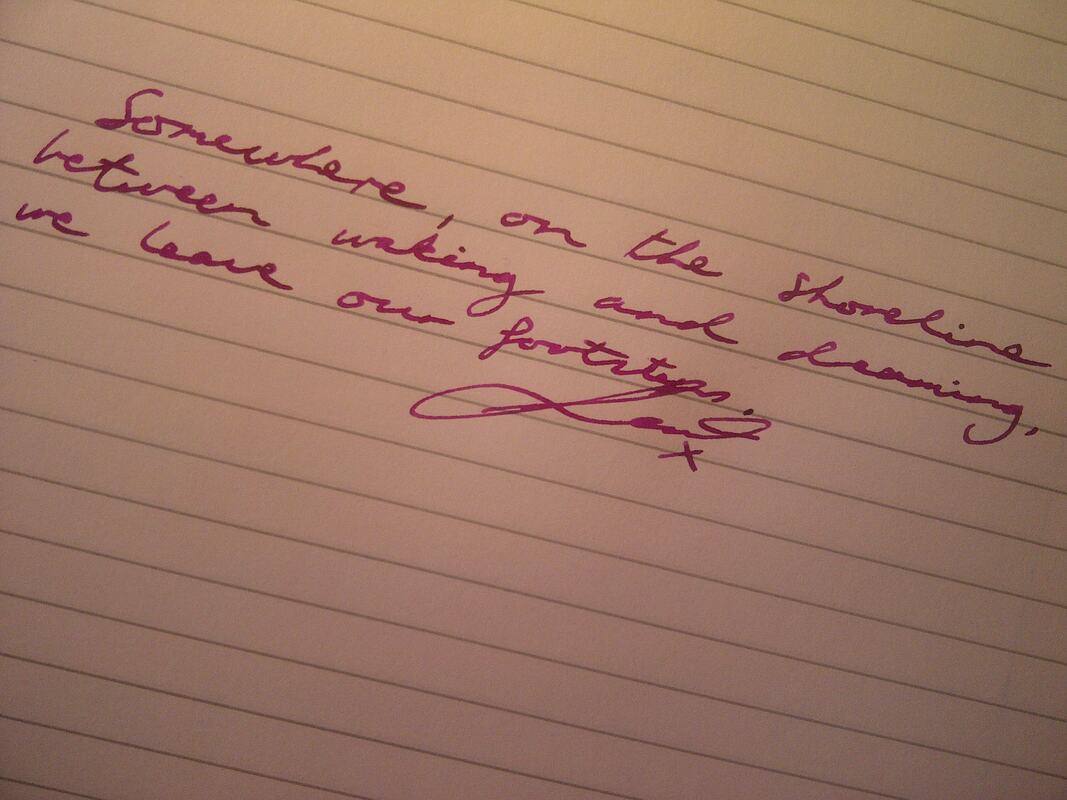

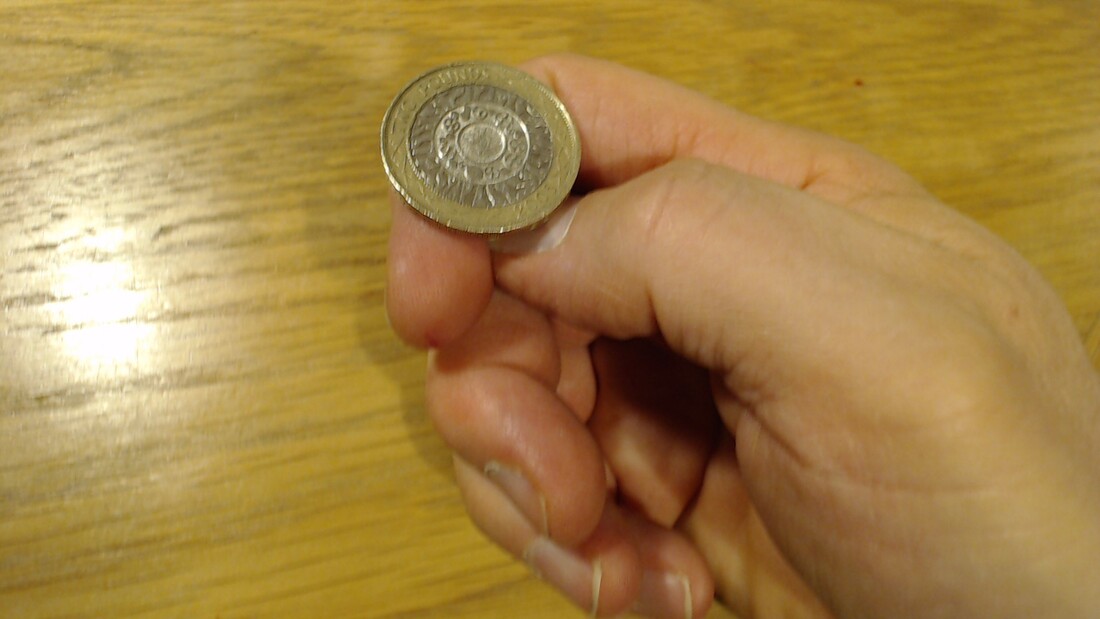

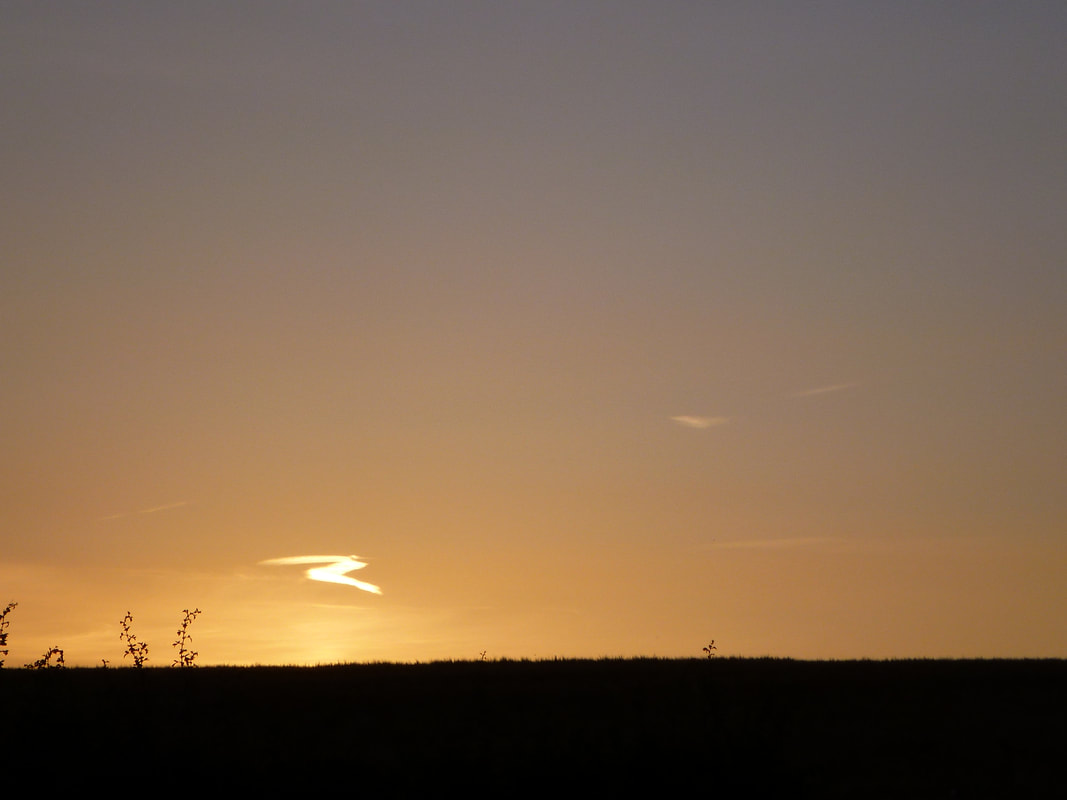

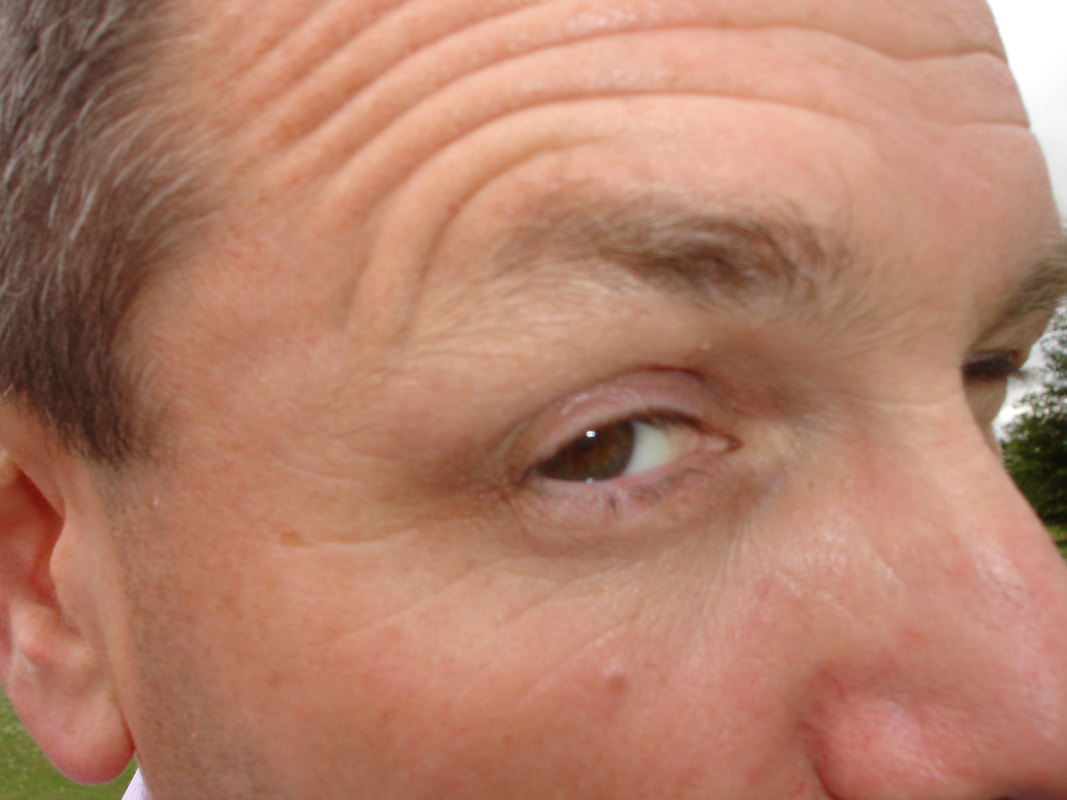
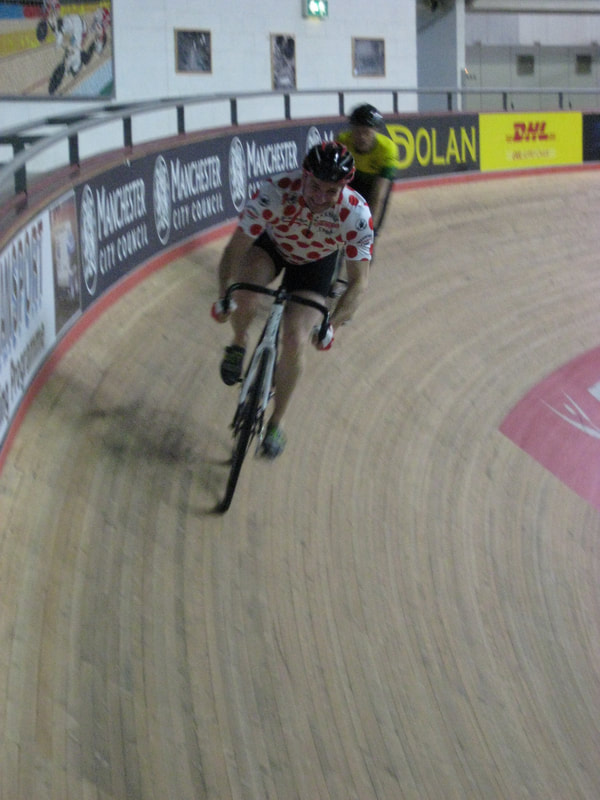


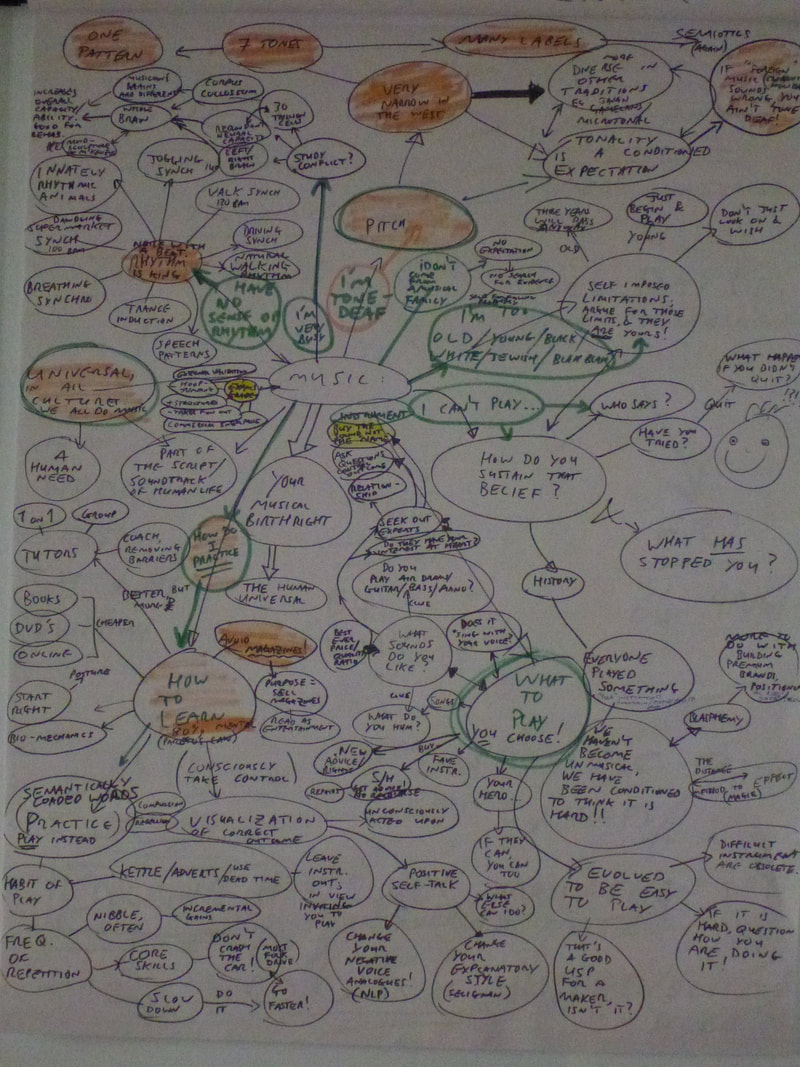



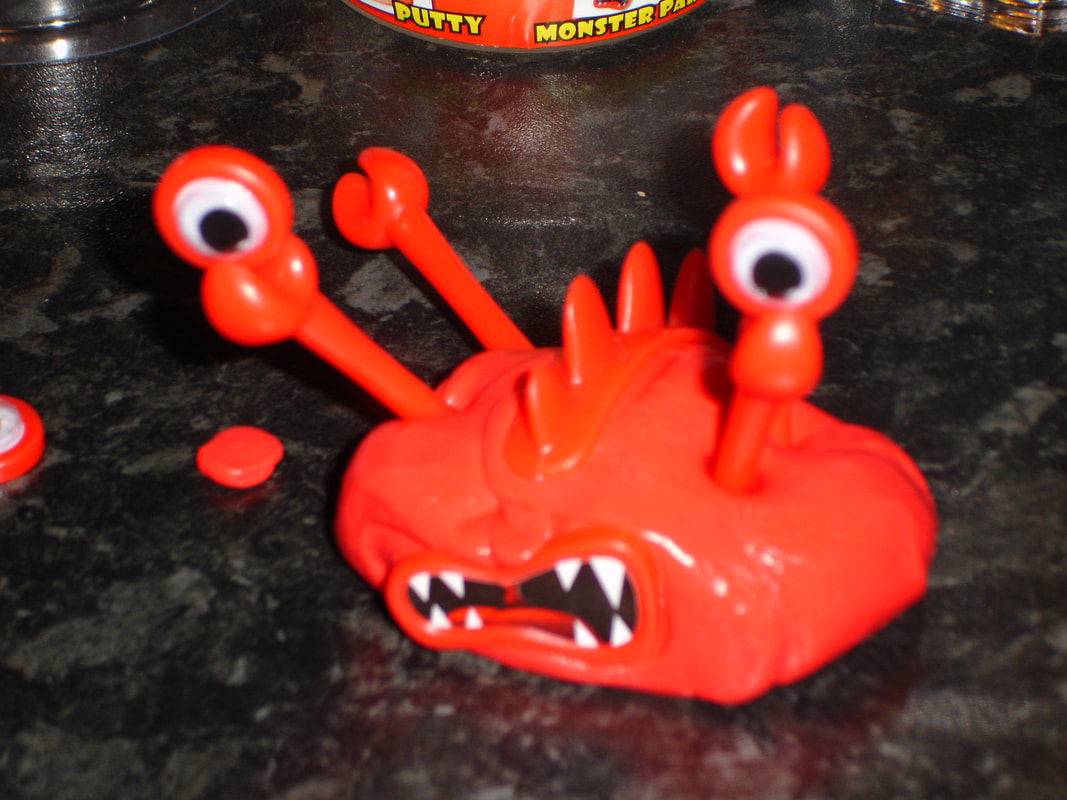

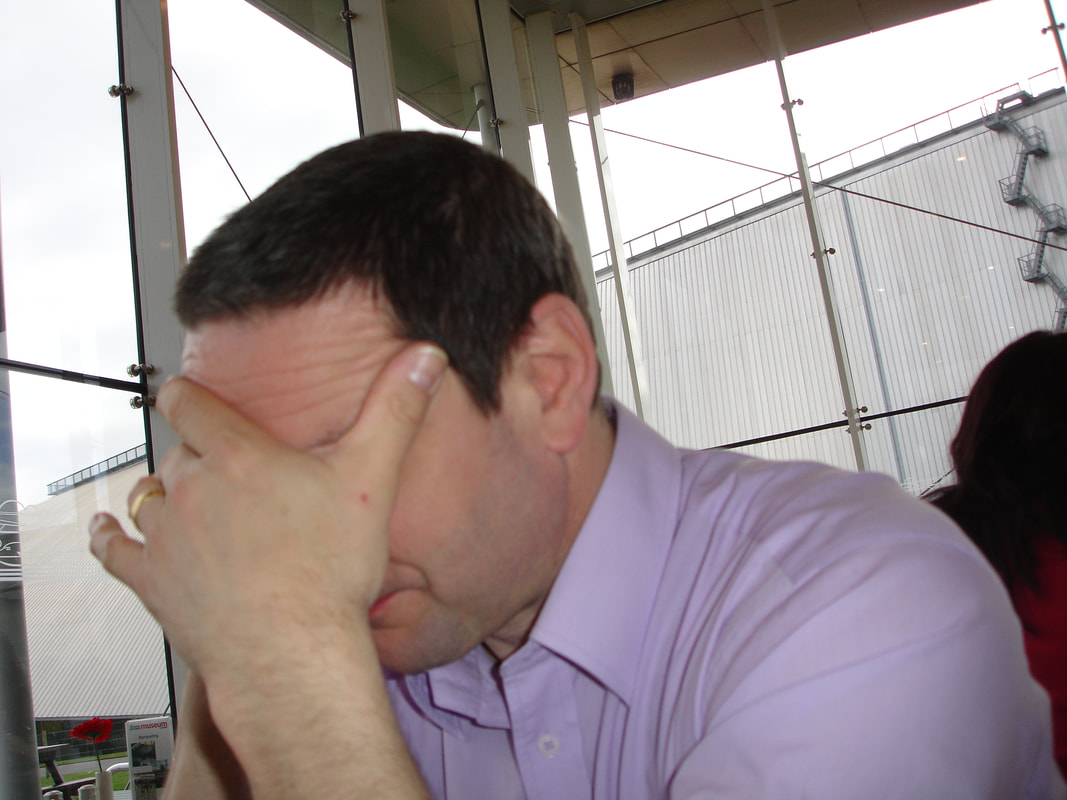



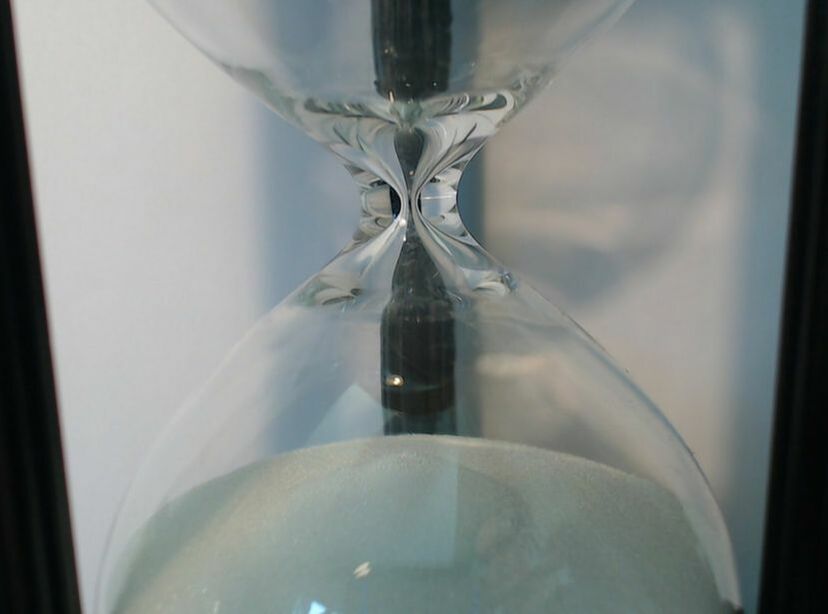
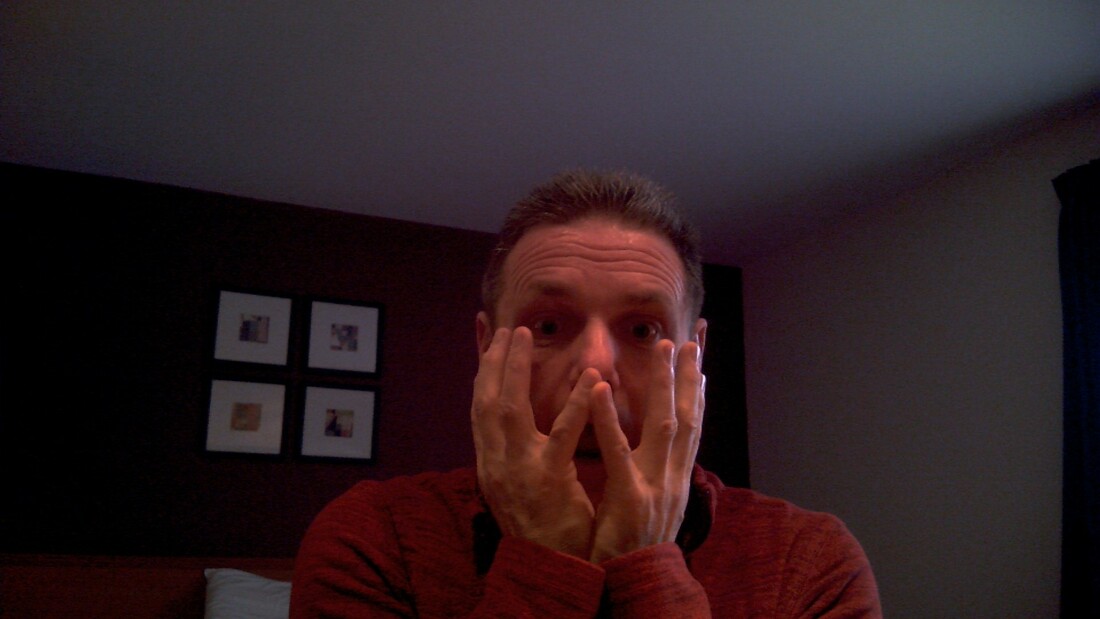

 RSS Feed
RSS Feed